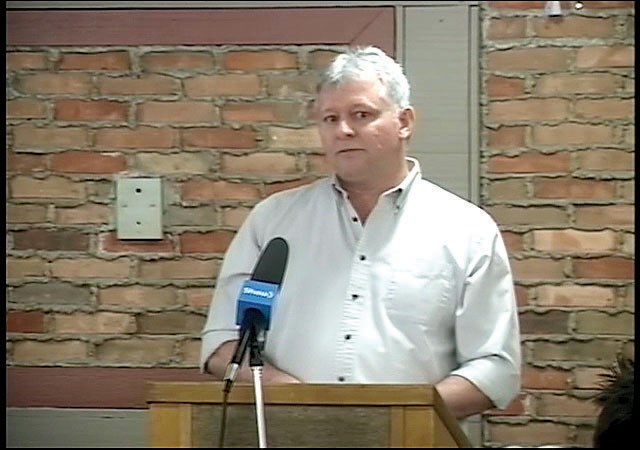Thompson Progressive Conservative MLA Kelly Bindle’s address to the Thompson Chamber of Commerce Feb. 1 covered regional concerns about the state of the Hudson Bay Railway and the Port of Churchill as well as provincial ones like the budget deficit and the tough choices dealing with that demands.
Bindle said the government met with various mining and mineral exploration companies at the Manitoba Mining and Minerals Convention in Winnipeg in November and that, while the desire to find mineral deposits is there, the market conditions and existing agreements mean the climate for doing so may not be.
“Every economy’s based on world demand and right now base metals are down, they’ve been down for a long time,” Bindle says. “Their complaint is there’s a lot of areas that aren’t being explored, that aren’t open up for exploration that are being held by some of the majors, Vale and HudBay. In the past there’s been agreements to promote exploration by offering long-term claims on different properties so that has become a disincentive for exploration and it hasn’t been explored but those are coming up for renewal. We’ve informed them that we’re changing the requirement. They can’t just sit on them. They either have to explore them themselves or join with a junior to explore it or sell it.”
Bindle says an encouraging sign is that mining and exploration companies are showing a greater willingness to consult and work with First Nations.
“They’ve already taken a proactive approach to consultation with First Nations and they have them on board,” he said. “They’re taking an attitude that we don’t want to be patted on the back for consulting which is what we should do in the first place so it’s nice to see that the process is becoming an expected pattern.”
On the topic of OmniTrax, which shut down the Port of Churchill for grain shipments last year and reduced the frequency of freight trains to Churchill, Bindle says the provincial government’s focus is on making sure that it isn’t trying to prop up a business with no chance of success.
“They want to sell it but they want to sell it at a massive inflated price that nobody can afford or would want to afford so what they’ve done is set up an agreement with Mathias Colomb [Cree Nation],” said Bindle. “I expect that there’ll be more demands coming for public subsidy, provincial subsidy and the province isn’t going to subsidize something that’s unsustainable."
Bindle says the plan being put forward by a consortium of northern communities who do have a private investor willing to invest in the port is more feasible because it gives the people that the port and railway serve some say in their operation. He also pointed at the sale of the former Tolko Industries assets in The Pas as an example of the government working to keep jobs in the north without subsidizing company operations.
“We allowed them to have two years without paying their pension contribution amount but we gave them five years after to make it up so there’s different agreements like that that the government is willing to do to keep the businesses in Manitoba and keep them investing,” he said.
Much of the blame for the province’s current fiscal position was laid at the feet of NDP.
“The previous government, just before the last election, six months before the last election, awarded way more contracts and spent way more money than they did in the previous six years,” he said. “It was an attempt to buy votes but it was also a scorched earth policy. Premier [Brian] Pallister’s calling it poisoning the water.”
Past deficit spending means the current government needs to be more careful, Bindle said.
“We’re paying about $855 million a year in interest servicing that debt,” he said. “We’re looking at a $1.164 billion deficit. The only way to get rid of that is to be more efficient with the money that you do have and increase your revenues. We want to increase our revenues by encouraging investment in Manitoba, by encouraging businesses to come here, by reducing red tape.”



